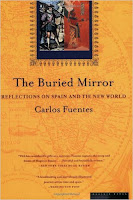 ". . . There is no univocal application to God that we can
make of any of the concepts that furnish us [with] our rational exploration of
the world. Yet we are not for this reason reduced to silence. For the very fact that we, [as] Christians,
believe that God has spoken to us; that all, in one sense, proceeds from his
Word, attests [to] a native kinship of the world, and of ourselves in
particular, with him. Yet this, which
authorizes for us an analogical employment of notions drawn from the
rationalization of our cosmic experience in order to speak of him as he has
himself spoken of them to us, requires that the cataphasis by which we
transpose onto him the givens of our experience be constantly corrected by the
apophasis that refuses every literal application that we would be tempted to
make of them.
". . . There is no univocal application to God that we can
make of any of the concepts that furnish us [with] our rational exploration of
the world. Yet we are not for this reason reduced to silence. For the very fact that we, [as] Christians,
believe that God has spoken to us; that all, in one sense, proceeds from his
Word, attests [to] a native kinship of the world, and of ourselves in
particular, with him. Yet this, which
authorizes for us an analogical employment of notions drawn from the
rationalization of our cosmic experience in order to speak of him as he has
himself spoken of them to us, requires that the cataphasis by which we
transpose onto him the givens of our experience be constantly corrected by the
apophasis that refuses every literal application that we would be tempted to
make of them.
"Even
this, however, is not possible without contradiction, except in virtue of a
divine condescension that guides us, according to the 'analogy of faith', towards
a usage of the fundamental analogy of being that entails an [(l’)] abandonment
in the darkness of our whole being to the God who dwells in a light inaccessible. This is why there is no valid theology except
in faith, and [no] authentic faith except that which tends to go beyond itself
into mysticism, or, more precisely, that mysticism of 'the love of God shed
abroad in our hearts by the Holy Spirit who has been given to us. . . .'
"One
cannot attain to this [(en arriver là)] without a purification of our religion
that is not only intellectual, but first moral.
Hence the impossibility of an authentic religion that is only
intellectual, or would like to be only such.
Yet this is what the Christian theologians, following the Jewish rabbis,
have never ceased to attempt, more or less underhandedly or naively. One does not apprehend (as one must) the truth
of God, in the measure in which he has rendered it accessible to us, except by
surrendering oneself to what he wishes to make of us; except by giving oneself
up to his agape; except by submitting
to that life which he wills to be ours.
Without this, we will never accede to that connaturality of grace for
the lack of which our knowledge is unable to come to terms with [(s’accorder
avec)] the meaning of his Word.
"This
supposes above all that God ceases to be for us a tribal divinity, however infinitely
enlarged, for one would thus enlarge [(agrandirait)] into a
monstrosity only our own deformity. In
order that we might think rightly of God, in other words, it is necessary that
we learn to consent to his requirements, in place of continuing to strain to capture
and exploit him for our own purposes [(dans notre proper intérêt)].
"But this,
again, implies [yet] another catharsis,
more radical still. After the intellectual
purification of our theology; after the moral purification of our religion, it
is necessary to procede [(en venir)] to th[at] ascetic purification for the
lack of which no mysticism can remain worthy of the name. Or, to put it more accurately, this here is the
first purification that the others necessarily presuppose, [and] without which they
cannot even be successfully undertaken.
It is a question of a drastic purification, not only of our
representation of the world; not only of our activity in the world, but of the
sources of our action as well as of our thought, on the most profound, the most
intimate, the most unfathomable level of what we might call our
sensibility. Without this properly
radical correction of all of our instincts, beginning with the [(notre)] imagination
(in the sense that Coleridge, among others, gave to this word; and which
concerns the whole prospective of our action and all possible prospection of
our universe), it is perfectly vain to hope to act—or, rather, to be acted
[upon]—in accordance with agape; [perfectly
vain] to (with stronger reason) hope to recognize the divine signification of it
[(en)]. And this is precisely why the malefactors
ultimately [(premiers)] responsible for the current crisis in the Church, ahead
of the irreligious priests and the unworthy theologians, are the 'religious';
i.e. the so-called witnesses to evangelical ascesis [who so] obviously [merely] counterfeit it [(devenus ses contrefacteurs patentés)]."
Louis Bouyer, Religieux et clercs contre Dieu (Paris: Aubier Montaigne, 1975), 99-101. Bouyer hammers away at those same three purifications here.






















